|
In today’s pandemic context, the suggestion to become friendly with death may sound strange. But what would it mean for a community to be friendly towards death, dying, grief and bereavement? Improving death-friendliness offers opportunities to improve social inclusion, and a death-friendly approach could lay the groundwork for people to stop fearing getting old or alienating those who have. Greater openness about mortality creates more space for grief.
Today in The Conversation Canada, Julia Brassolotto from the University of Lethbridge, Albert Banerjee from St. Thomas University and Sally Chivers from Trent University explain what death-friendly communities might look like. They draw from the compassionate communities approach, and say one of the benefits of death-friendly communities is that there isn’t a one-size-fits-all model. Communities can vary, allowing each to imagine and create its own approach to death-friendliness.
During COVID-19, it’s become clearer than ever that grief is both personal and collective. Becoming more comfortable with death is an idea worth exploring.
Also today:
|
Haley Lewis
Culture + Society Editor
|

|
|
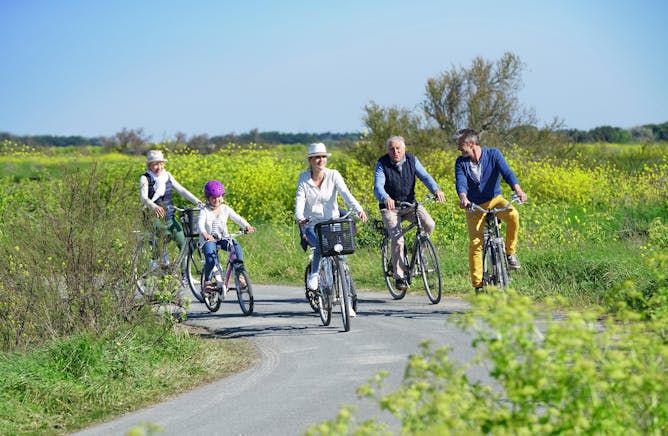
Improving death-friendliness offers further opportunity to improve social inclusion. A death-friendly approach could lay the groundwork for people to stop fearing getting old or alienating those who have.
(Shutterstock)
Julia Brassolotto, University of Lethbridge; Albert Banerjee, St. Thomas University (Canada); Sally Chivers, Trent University
Death-friendly communities that welcome mortality might help us live better lives and provide better care for people at the end of their lives.
|
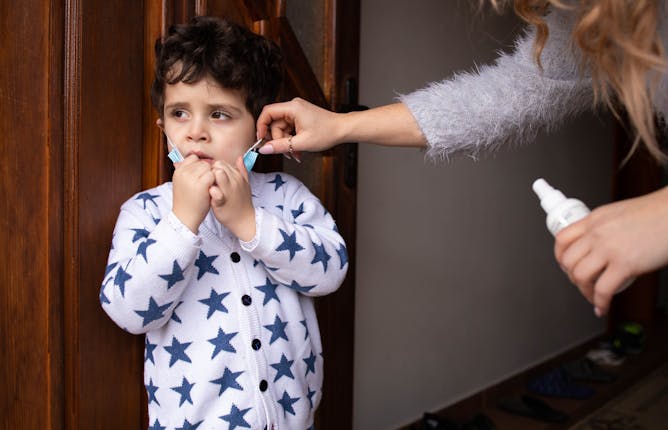
COVID-19 has led to global shut-downs which have rattled economies and families and will affect children for years to come.
(Shutterstock)
David Philpott, Memorial University of Newfoundland
Particularly after the devastation of COVID-19, evidence is mounting for the economic argument of reinvesting in high-quality early childhood education.
|
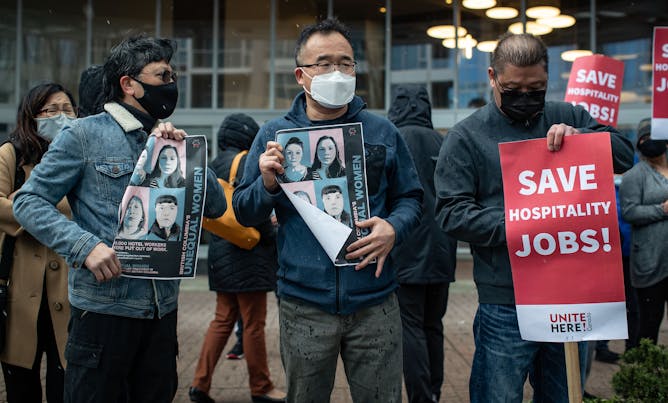
Hilton Metrotown hotel employees hold signs and posters during a news conference outside the hotel in Burnaby, B.C., in February 2021. The employees’ union urged prospective guests not to stay at the hotel as a job action after dozens of workers were laid off.
THE CANADIAN PRESS/Darryl Dyck
Scott Schieman, University of Toronto
Those who have been laid off during the COVID-19 pandemic have experienced a loss of control. Here's how some of them dealt with it.
|
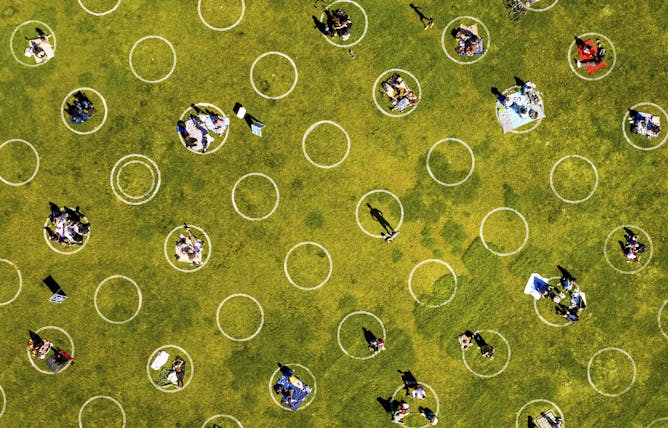
Circles designed to help prevent the spread of the coronavirus by encouraging social distancing line San Francisco’s Dolores Park on May 21, 2020.
(AP Photo/Noah Berger)
Meg Holden, Simon Fraser University; Atiya Mahmood, Simon Fraser University; Ghazaleh Akbarnejad, Simon Fraser University; Lainey Martin, Simon Fraser University; Meghan Winters, Simon Fraser University
The social restrictions of the COVID-19 pandemic have illustrated how important human connections are to health.
|

The World Health Organization is building a gameworld to allow medical practitioners to admit virtual patients for emergency treatment during a mass casualty simulation.
(Shutterstock)
David Chandross, Ryerson University
A game world is an immersive fantasy world that is created with the intention of promoting interaction with its environment.
|
La Conversation Canada
|

Les quatre nouveaux visages de l'information à Noovo : (à l'avant, de gauche à droite) Lisa-Marie Blais, Noémie Mercier, (derrière, de gauche à droite) Meeker Guerrier et Michel Bherer.
Noovo
Jean-Hugues Roy, Université du Québec à Montréal (UQAM)
La vidéo pour mobile est peu exploitée par les médias québécois. C’est là que Noovo.info pourrait se démarquer et rejoindre un autre public que celui, vieillissant, des bulletins télé.
|
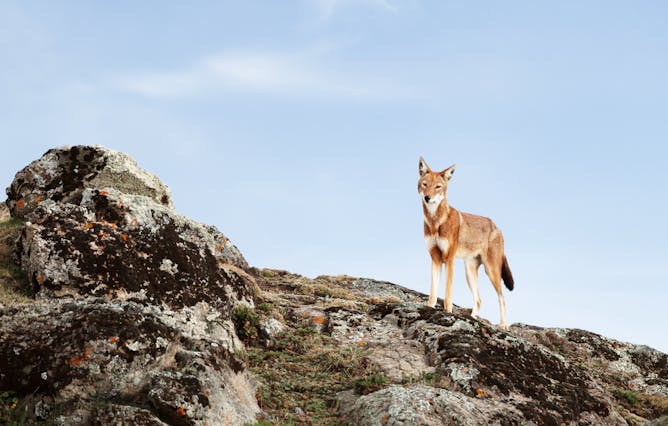
Le loup d’Éthiopie vit en populations éparses dans des chaînes de montagnes reculées d’Éthiopie. Sa remarquable résilience permet de croire qu’un rétablissement de l’espèce est possible si on parvient à tenir en échec des menaces telles que la perte et la dégradation de son habitat.
Shutterstock
Dan Greenberg, Simon Fraser University; Anna Hargreaves, McGill University; Arne Mooers, Simon Fraser University; Brian Leung, McGill University
Les rapports sur la disparition de la biodiversité mondiale sont plus complexes et encourageants qu’ils ne le laissent paraître. Des données plus nuancées pourraient sauver certaines espèces.
|
Environment + Energy
|
-
Christian Brand, University of Oxford
Active travel can help tackle the climate crisis earlier than electric vehicles – even if you swap the car for a bike for just one trip a day.
|
|
Politics
|
-
Leila Patel, University of Johannesburg; Natasha Borges Sugiyama, University of Wisconsin-Milwaukee; Wendy Hunter, The University of Texas at Austin College of Liberal Arts
Findings show that income transfer programs must operate in deliberate co-ordination with ancillary social service institutions to deliver the maximum benefits for women’s empowerment.
|
|
Science + Technology
|
-
Daniel Kelly, Sheffield Hallam University
A growing online movement believes that giving up masturbation can make us happier and boost our testosterone levels.
|
|
| |
| |
| |
| |
| |
| |
|
|